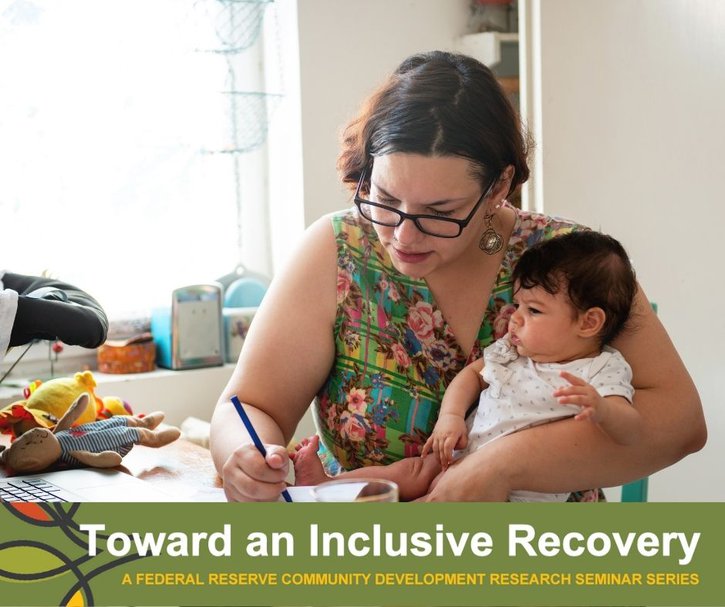While the pandemic continues, the economy is nearly fully recovered from the initial economic shock. The recovery, however, has masked the uneven nature of the pandemic recession as women faced the largest job losses and slowest recovery. Not all have experienced the pandemic recession similarly. Black and Hispanic mothers without college degrees have recovered slowly while white mothers have largely returned to pre-pandemic employment levels. The Federal Reserve Bank of Kansas City has examined the issue to better understand who was most affected by the recession, who may be lagging in recovery, and what can help women equitably participate in the economy.
Tüzemen found large inequalities in how the pandemic affected women
In her External Linkexamination of economic data from February 2020 through June 2021, Didem Tüzemen, Kansas City Fed senior economist, found the pandemic-induced recession led to uneven effects in job loss and recovery. Women experienced more job loss than men. When considering education, race/ethnicity, and presence of young children, some groups of women were more likely than others to experience job loss. The findings are important to understanding how and when the economy may fully recover from the recession. A better understanding of those differences may foster a better understanding of the equity implications that stem from low-wage women and women of color having experienced more job loss and a slower recovery.
- Largest employment loss and slowest recovery
Tüzemen found women with specific characteristics and employment sectors were most likely to face job loss and slow economic recovery.
- Industry sectors
Women working in Leisure and Hospitality, Education and Health Services, or Retail
- Sex and education level
Women without a bachelor’s degree
- Sex, education level, and race/ethnicity
Hispanic women without a bachelor’s degree
- Sex, education level, race/ethnicity, and presence of young children in their home
Non-Hispanic Black mothers of young children
Segmenting women by sector and characteristic made it clear who was most affected by pandemic-related job loss. There are still many questions unanswered by the data. For instance, why was there a larger employment gap between non-Hispanic Black women with and without young children than for Hispanic women? Or why was there no employment gap between non-Hispanic white women with and without children? These questions require more investigation.

Toward an Inclusive Recovery: Understanding and Empowering Women’s Economic Participation
The Federal Reserve Banks of Dallas and Kansas City will co-host a webinar to explore some of these questions. Top scholars of women’s employment and barriers to work have been invited to talk about their research. They will share the issues women faced during the pandemic and how the situation now compares with pre-pandemic times. One set of panelists will focus primarily on the employment effects of the pandemic while a second panel will focus on childcare issues. Esther George, president of the Kansas City Fed, will give closing remarks on the Federal Reserve’s interest in women’s employment, especially as it pertains to low- and moderate-income populations and people of color.
Please join us Oct. 21, 2021, 10 a.m. – 12:35 p.m. CT for External LinkToward an Inclusive Recovery: Understanding and Empowering Women’s Economic Participation. Registration is free and open to all who would like to attend.
This webinar is part of the Federal Reserve System’s Community Development Research Seminar Series. All events are recorded and available to watch afterward, including the External LinkToward an Inclusive Recovery Series :
- Aug. 3, 2021: Labor Market Attachment and Financial Security Among Low-income and Marginalized Workers
- Oct. 21, 2021: Understanding and Empowering Women’s Economic Participation
- Nov. 17, 2021: Increasing the Housing Security of Vulnerable Renters through Rental Assistance
